Silent Hill 2 and Bloober Team could actually be a scarily great match
Tighter than Gomez and Morticia Addams
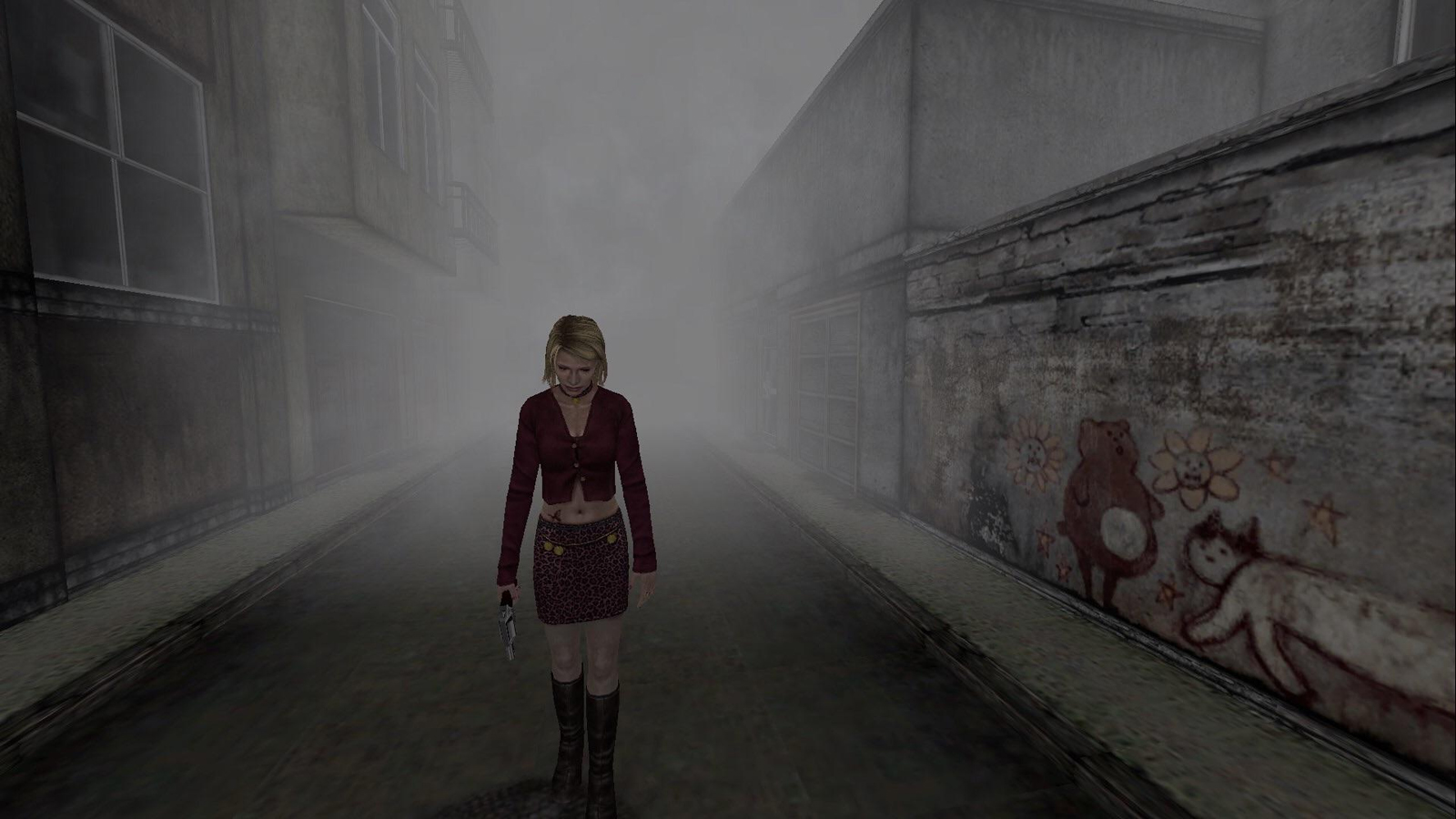
The perfect marriage of horror developer and game remake may finally be upon us.
After months of rumors on the future of Silent Hill, we've finally arrived at, well, more rumous. But wait, this time they're backed up by coy (and apparently chuckle-filled) statements from the head of Polish developer Bloober Team that they can't "officially" comment on whether they will indeed be remaking the beloved Silent Hill 2. If there's nothing to it, then what's with all the chuckling?
It's not exactly concrete evidence, but there have been enough signs pointing to Poland for Silent Hill fans to start scrutinizing the qualifications of the studio behind games like Layers of Fear, Blair Witch, and – most recently – The Medium to remake one of the best horror games of all time.
While Bloober Team has built up a solid fan base over the years, it says a lot about the enduring mystique of Silent Hill that its official Twitter page still has about a third more followers than the prolific Polish studio – despite having nothing to tweet about except action figures, merchandise, and Pachinko machines. There's not much crossover between these followings, and the reaction from the Silent Hill faithful to the news has been a little damp.
But the likely Bloober-Silent Hill matchup, which feels both predictable and – to some – underwhelming, could well prove a lot of doubters wrong. Warning: Blair Witch and The Medium story spoilers ahead.
Vow of silence
Let's get this out of the way first: Bloober Team is no Team Silent, and none of its games match up to the subtlety or artfulness of Silent Hill 2 (no shame in that, given that arguably no other horror game does). But of the many developers who have used elements of Silent Hill's elusive formula in its absence, few have been quite as consistently reverent of the long-lost series as Bloober, which has created competent simulacrums of Silent Hill's concepts and imagery over the years.
Right in the aftermath of Silent Hills' cancellation in 2015 came Layers of Fear, with its tight, P.T.-like corridors and spectral head-juddering antagonist – much in the vein of Silent Hills' Lisa. The Medium, meanwhile, saw you solving puzzles and crossing dimensions between a living and spirit world (which – surprise, surprise – is essentially a warped, rust-hued twist on reality). In all but name, The Medium relied on the same Light World / Dark World dichotomy that's been at the heart of most Silent Hill games.
Get daily insight, inspiration and deals in your inbox
Sign up for breaking news, reviews, opinion, top tech deals, and more.
Bloober's work is often derivative, then – content to evoke rather than evolve. But it's also stylistically sound, atmospheric, and capable of giving the willies to those looking for a solid mid-brow horror jaunt. Its early games, Observer and Layers of Fear, stuck safely within their respective genre conventions – cyberpunk and haunted house horror – to deliver tropey but aesthetically pleasing psychological experiences.
The studio's shortcomings have surfaced when it's aimed higher in recent years, attempting to elevate its solid set-pieces and imagery into meaningful symbolism or commentary on serious subjects. Its last two games, Blair Witch and The Medium, do a fine job in telling tragedy-tinged stories in cool, spooky settings, but both stumble as they try to integrate heavy themes into their narratives – namely the cyclical nature of trauma and abuse (incidentally or not, very similar subject matter to Silent Hill 2).
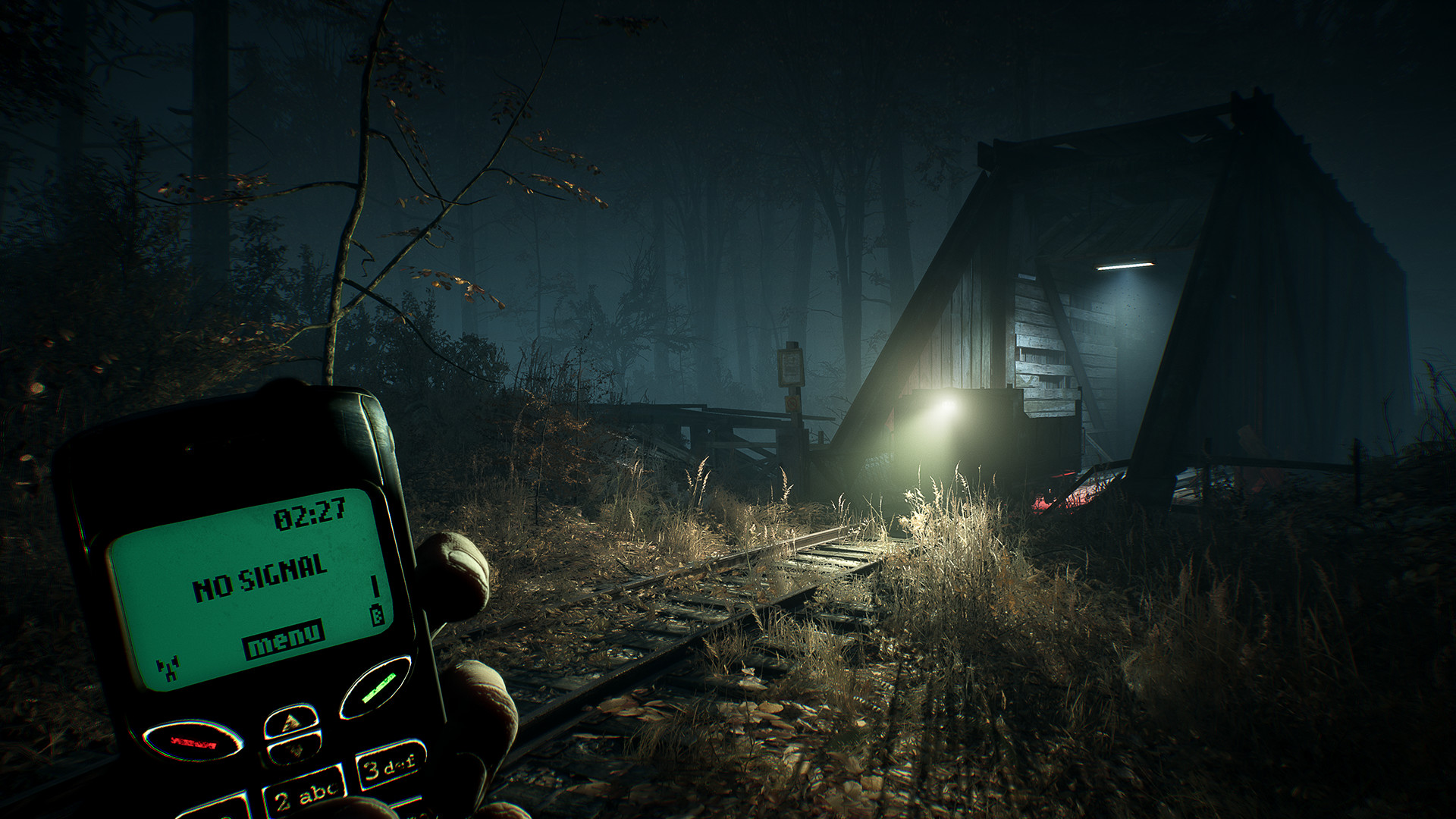
In Blair Witch, you play Ellis, a former cop and marine plagued by PTSD, who joins a search for a missing boy in the forests of Maryland. The cause for his condition, we later learn, is the killing of an innocent girl during a botched military operation, which subsequently led to the death of Ellis’ whole squad. This traumatic event indirectly begets another tragedy, when Ellis shoots an unarmed boy while on cop duty. Bloober proves capable of conveying his trauma on a visual and aural moment-by-moment basis, with flashbacks to warzones, haunting superimpositions of the past, and inner voices pushing him towards violence in perceived 'fight or flight' situations. However, the studio wraps this up with the grace of a team still stuck in its adolescent phase.
Bloober reel
The 'big twist' at the end of Blair Witch is that Ellis himself is the kidnapper-killer he's been tracking through the woods. It's a conclusion both clichéd and problematic, relying on a complex mental disorder as its core narrative hook, before reducing it to an extreme and improbable outcome. It only gets worse with the ending – where the 'good' one sees Ellis kill himself, in order to defeat his killer alter-ego and therefore Break The Cycle. If Ellis doesn't kill himself, he succumbs to the killer personality within him. In other words, there's no hope of redemption for our traumatized protagonist.
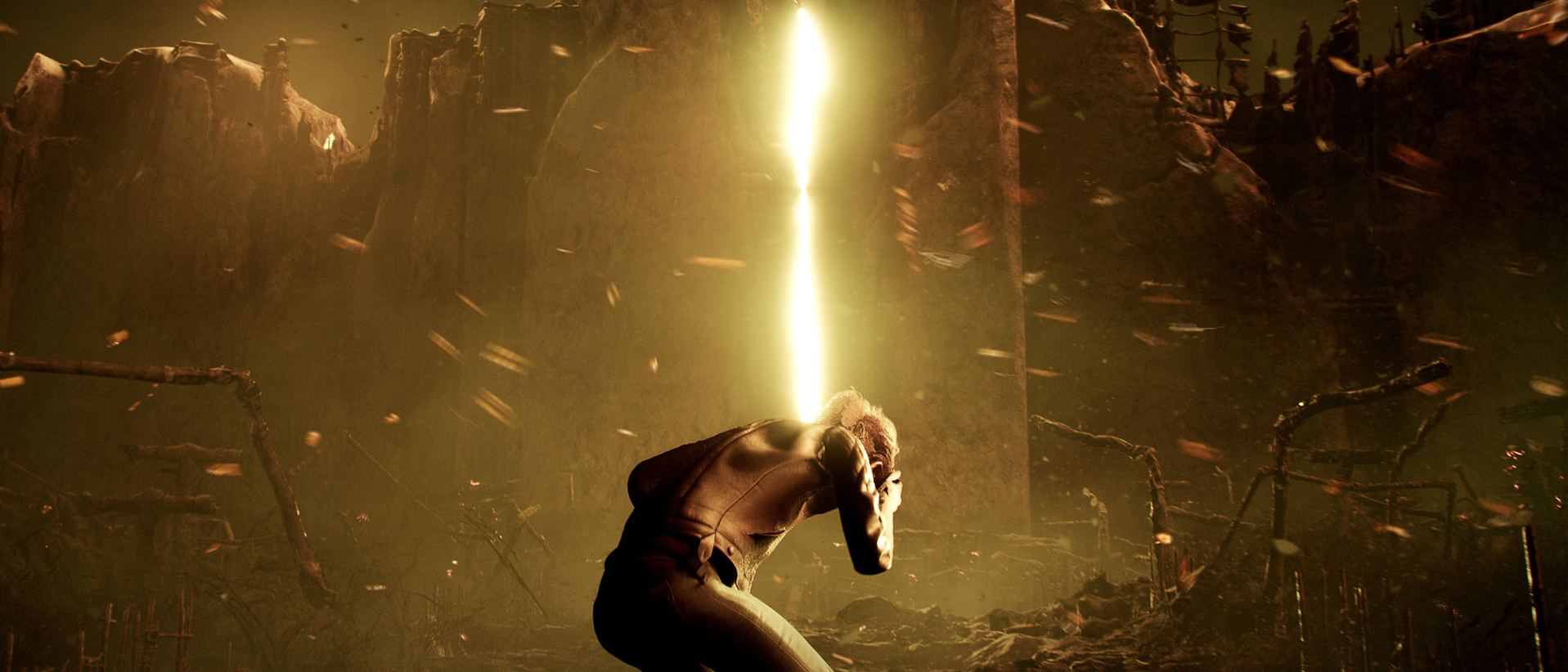
The Medium – again at the end of an engaging and haunting journey – similarly misses the mark. The game draws on classic Silent Hill themes, manifesting trauma in the form of grotesque monsters in the Spirit World, which are unleashed by people who have endured what's heavily implied to be sexual abuse. It explores how the cycle of abuse can repeat itself across the generations, leading eventually to the protagonist's sister Lilianne – within whom a demon awakens following her own abuse.
The story ends with Lilianne begging the player – playing her sister Marianne – to kill her in order to defeat the demon and, again, break a cycle. The alternative is for the protagonist to kill herself, which would also break the demon's connection with the real world. The coda is ambiguous, as the screen blacks out and we hear single gunshot. But the game's final words – "You can't save everyone" – once again allude to a simplistic conclusion: some people are just too broken to be redeemed, doomed to perpetuate the damaging behaviours they've fallen prey to.
A basic understanding of these topics can assure you that such a concept is ridiculous; cycles of abuse and trauma are by no means inevitable. But instead of exploring this through multiple endings based on meaningful player choices, as per Silent Hill 2, Bloober opts for an easy way out.
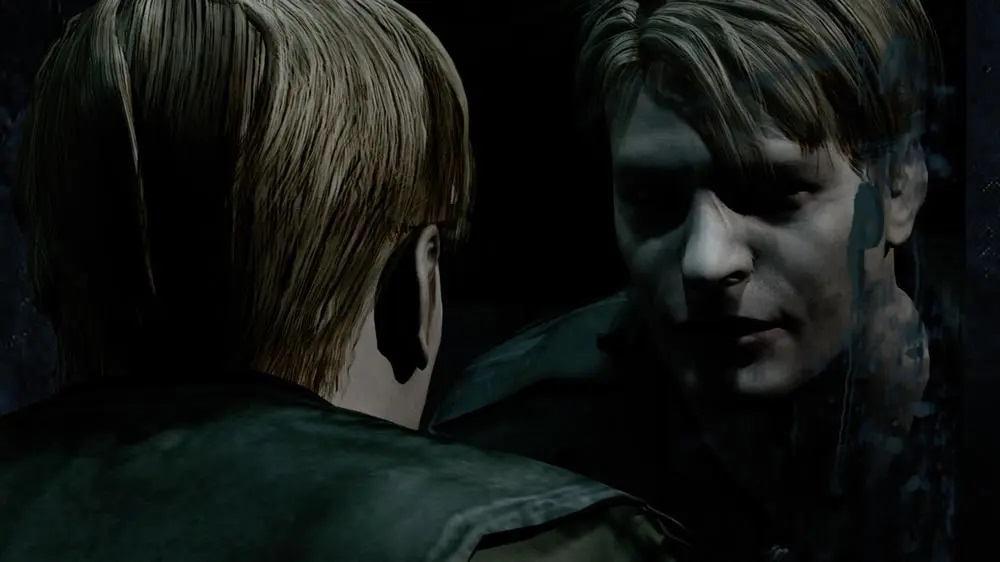
It's crude and tone-deaf – indicative of the naivety of a studio that's struggling to elevate itself from basic B-horror to complex psychological A-horror. Ironically, Bloober is stuck in its own unhealthy cycle, where its storytelling ability hasn't grown along with its budgets, production values, and reputation. Based on current form, it's not unthinkable that a new Silent Hill from Bloober would deal with its protagonist's traumatic past via the subtlety of a literal shotgun blast to the face.
Quiet time
But Bloober isn’t making a new game. It’s (probably) making a remake, and that could offer redemption for both the studio and a series that, lest we forget, has been broken for a long time. Bloober would be working within a strict framework, one already fitted with multiple endings – satisfying outcomes reflective of your journey. Working on a game that so elegantly handles the very subjects that Bloober has struggled with could be just what the studio needs to break its own cycle.

This wouldn't just be a one-way therapy session for Bloober from gaming's master of psychoanalysis. For Konami and Silent Hill, Bloober represents the fan-turned-professional – enamored with the source material and technically sound. The Medium has revived the semi-fixed camera angle perspective, showing that it very much has a place in modern horror.
Crucially, Bloober's games are almost entirely free from the most contentious point of the Silent Hill series: combat. Latter-day, outsourced Silent Hill games were blighted by an excessive focus on action, quick-time events, and other unwelcome gubbins. Even back in Silent Hill 2, the combat was always the weakpoint – a perfunctory and necessary evil at a time when it was unthinkable that a console audience's attention could be held without putting a gun or lead pipe in your hand. By contrast, Bloober knows how to design low- and no-combat games. Applying that approach to a Silent Hill 2 remake could be one of the more welcome and radical departures from the original game.
There are other big questions still outstanding of course. Can Bloober recreate that dreamy, distant voicework of the original Silent Hill 2, which Konami itself infamously bodged with its own HD remasters? Can a studio that has specialized in linear, narrative-driven games open that out into the streets, elaborate buildings, and puzzle-heavy design of Silent Hill?
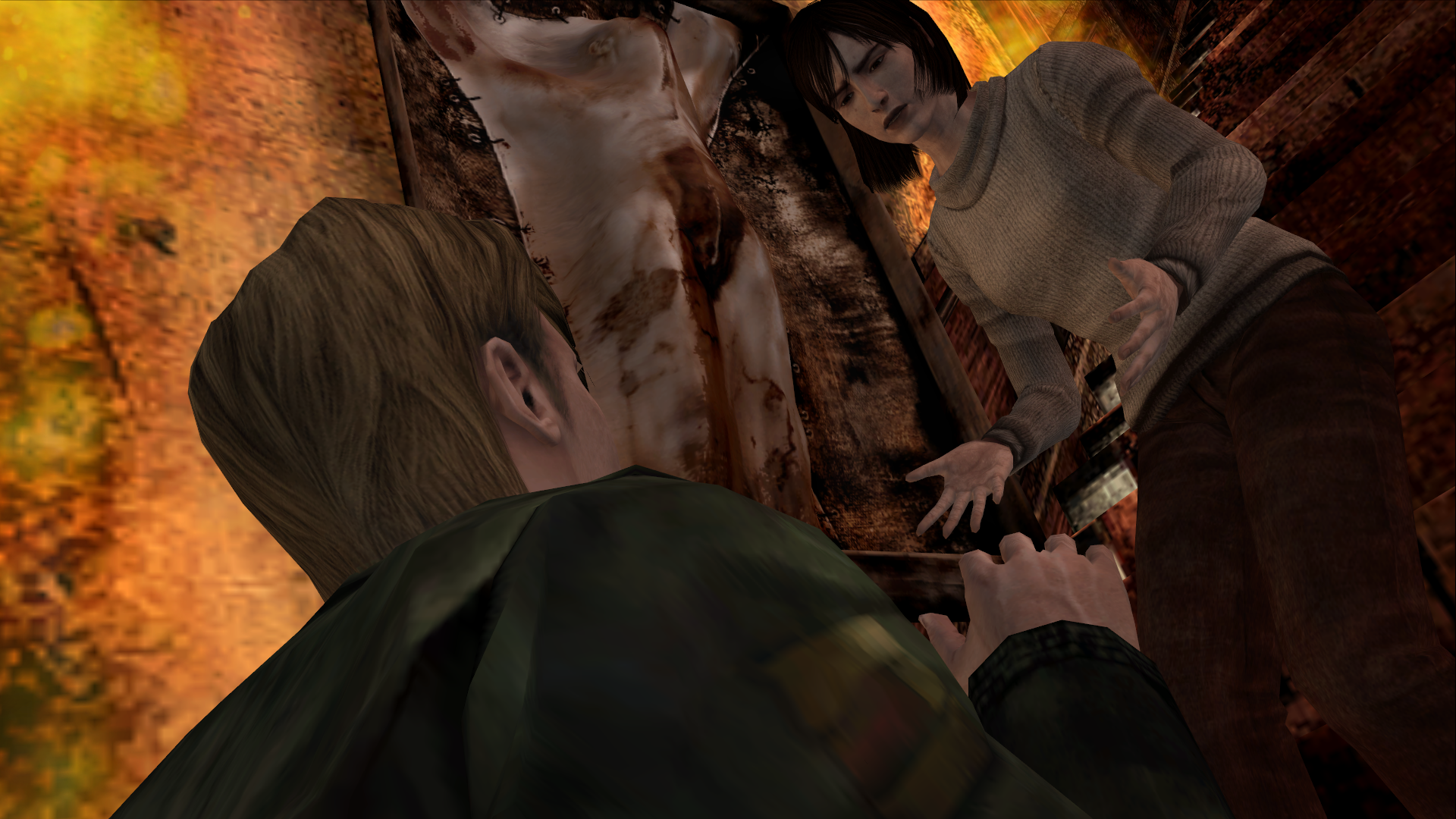
But let's remember that great remakes have often popped up from unexpected places. No one could've predicted that Bluepoint Games – best known for sprucing up and remastering previous-gen Playstation games for the new generation – would so gracefully remake Shadow of the Colossus (and later Demons' Souls); or that the ever-troubled Hangar 13, makers of the shonky Mafia 3, would pull off an excellent remake of the original Mafia; or that a collective of modders would remake the original Half-Life (as Black Mesa) with such confidence.
A remake comes with its own set of challenges, but it also provides a strong narrative foundation, which is just what Bloober Team has been lacking. Konami, on the other hand, needs a safe pair of hands that are faithful to the source material and unlikely to deviate, in the way so many later Silent Hill games did. What better studio to do that than this one, whose identity was largely built off a longing for that forsaken Pacific North-West town? Bloober alone has given us flashes of Silent Hill during a time when the real thing seemed lost in the fog of distant memory.
Robert Zak is a freelance writer for Official Xbox Magazine, PC Gamer, TechRadar and more. He writes in print and digital publishing, specialising in video games. He has previous experience as editor and writer for tech sites/publications including AndroidPIT and ComputerActive! Magazine.
